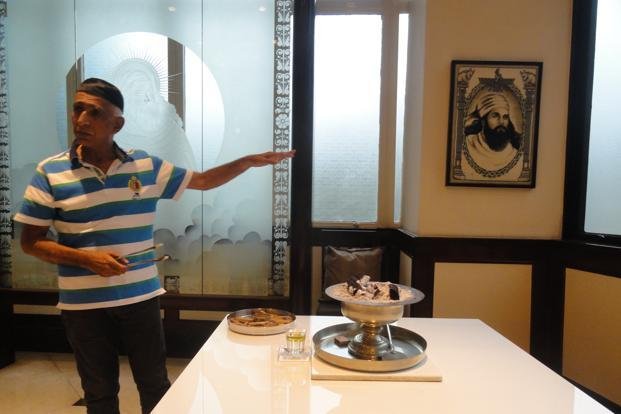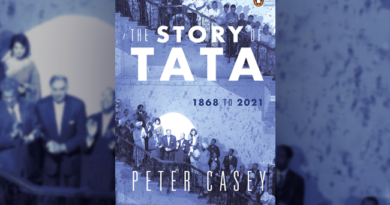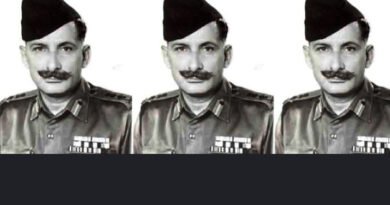The Doongerwadi dilemma spells trouble for Mumbai’s Parsi community
A recent clash between the Bombay Parsi Punchayet and Class IV workers of the community’s Tower of Silence or Doongerwadi (translated, “garden on the hill,” this is the final resting place of the city’s Zoroastrians) over a wage hike is threatening an ethnic ritual of disposing the dead that the group has followed for centuries. The protesting workers include khandias or pallbearers, who carry the body to its final destination for exposure of the dead, particularly to scavenging birds for the purposes of excarnation at the 85-year-old dokhma or Tower of Silence. These 18 khandias must be Zoroastrian which, given the macabre nature of their work, makes them even harder to replace.
On warring sides of the argument are BPP Trustee, Yazdi Desai, and General Sectretary of the Mumbai Mazdoor Sabha, Dhunji Netarwala. Desai, director in a top relocations firm, says, a broke BPP cannot repeatedly give in to the Union’s pressures. “Someone has to say, enough!”, he says.
Netarwala, a determined 74-year-old, who was manager, personnel and administrative Services at Tata Textiles for 38 years, says in July 1997, for the first time in the history of the Tatas, Bombay House was shut down for non-payment of dues. No stranger to strikes, he claims the workers will win.
‘Taking bodies through last rites makes them akin to priests’
Q. Grouping pallbearers with support staff (sweepers, gardeners, etc.) increases your bargaining power because khandias and nasâsâlârs are hard to replace. But is it a fair tactic?
A. Our agitation is for all Parsi Punchayet Class IV workers, who are members of the Mumbai Mazdoor Sabha since 2003. We have seen four agreements with the BPP in the past with no problems.

Q. In the last three-yearly negotiation, the BPP raised salaries by 40%. Shouldn’t this be the standard increase?
A. When we make a demand — and the same is true for any workers’ union — it’s always on the higher side since we leave room for negotiation. We base our demands on inflation, raise in standard of living, cost of transportation, etc. An increment of Rs 6,000 to Rs 7,000 per person (for 220 workers) is reasonable.
Q. Some members of the community think your demands are outrageous due to the generous salary and tips khandias receive.
A. Firstly, reports in the papers about salaries of workers are incorrect. Typically, after 15 to 20 years of work, a khandia or nasâsâlâr gets about Rs 16,000, and sweepers make Rs 15,000
Next, the Khand allowance is not paid by the BPP but by family members of the deceased. Typically, it amounts to Rs 900. This is not part of their regular income, so it does not factor into calculations for bonus, provident fund, etc. Tips cannot be considered part of salary. For one thing, they’re not constant. And they aren’t distributed evenly. I’m told that supervisors and managers at Doongerwadi take double the share of khandias. Bonus is a statutory payment calculated on wages. The BPP is paying just about one point more than the minimum an employer is supposed to pay.
Yes, sweepers wish to live well and educate their children. The BPP should be proud of this.
Q. But they say they are broke.
A. They are one of the richest trusts in India. All of a sudden there has been in-fighting. Their actions have resulted in the Charity Commissioner putting a stay so that the BPP cannot dispose properties. Yazdi Desai and his group had asked for a stay to keep Dinshaw Mehta from disposing Trust properties, but they were told the stay would bind everyone. They have wasted more than Rs 3 cr on various legal tussles. It’s not the fault of the workers that they are short of funds.
Q. Isn’t the role of the khandia and nasâsâlâr meant to be more than just a job, a higher calling. Don’t your protests reduce their work to ordinary jobs done for a pay cheque?
A. The work that they do is difficult and nauseating…to go inside the Tower and see the decomposing bodies. It doesn’t help that the solar panels don’t work effectively. The upper portion of bodies decomposes due to exposure to heat and the lower doesn’t. When fat burns, bits of limbs fall off.
Not all are provided with housing. Some travel from Vasai to Malabar Hill, to be at the job at 6 am. The position has to be occupied by someone 24 hours a day, and there are only 20 khandias/nasâsâlârs in Mumbai who work in three shifts.
There are some in the community who feel if they pay khandiyas better salaries, their children will not continue the tradition. They wish to see them dependent on charity.
Q.You’ve said they khandias are treated like untouchables. Is your demand a means to punish the community for undervaluing them?
A. I feel that the job they do — taking the body through the last rites — makes them akin to priests. Why should they be treated like untouchables? People say, “He’s a nasa! We don’t want him here.”
Q. What is your grouse with Yazdi Desai?
A. We’ve maintained good relations with the management. We print cards for festivals, and send them out. We sent one to Mr Desai with a coffee mug to wish him for Diwali. About a month later, there was problem with the BPP regarding workers employed to cut grass in Doongerwadi and payments were delayed. I might have said something on the phone in the heat of the moment. He returned the card with a message that hinted that I was trying to blackmail the BPP. I responded with a tough letter saying the gift was from the entire Union and that he is insulting our President. The letter came into the hands of a Parsi publication that published it.
Q. If you force their hand, isn’t it possible that they will replace all non-Parsi staff with contractual labour?
A.They have to follow the law. You cannot replace permanent workers with contractual labour. They would have to furnish a notice for retrenchment/closure. And, pay heavy compensation.
‘Actually, what we need is a CEO for Doongerwadi’
Q. The Union asked for a 70 % wage hike and you offered 7%. Isn’t that a bit sharp?
A. Wage increases are effected to cover inflation or if there’s a change in job profile, a promotion. That’s how it is in all companies and that’s how I believe it ought to be. A majority of the BPP board (including seven trustees, although one resigned recently) felt that 7% year on year (for three years) was a sufficient raise. What the Union is asking for is 65%. That works out to a Rs 6,500 increase for someone who earns Rs 10,000. I’m convinced that we cannot afford to pay more. The BPP cash reserves are strained. The last two increases totaled 40%, which is huge. Today, our watchmen and sweepers are better paid than those at other charitable trusts. Peons of the Sir JJ Trust, in whose building we operate, get Rs 10,000 after 25 years of service. Our peons get close to Rs 21,000 for the same time plus provident fund, education allowance, medical insurance etc.

Q. The Union asked for a 70 % wage hike and you offered one of 7%. Isn’t that a bit sharp?
A. Our properties generate income as rent but we also have to pay for their maintenance, building repairs, water charges, security charges and salaries of workers in baugs. Between the income we earn and money we spend, our expenses outweigh income by an average of Rs 6 cr a year.
We’re not a profit making organisation. For example, we bear 50% of repair costs if a tenant of one of the seven colonies we run wishes to undertake repairs. We give dole to underprivileged Parsis, ranging from Rs 2,000 to Rs 4,000 a month. Then there’s the Mobed scheme where we pay Rs 10,000 per month to priests who pray full time at agiarys. We give subsidies to parents who have a second and third child.
Q. According to an email you sent fellow trustees (according to Parsiana.com), you believe that the agitation is the result of someone’s personal vendetta against you.
A. Yes, the BPP office has become a political office. The BPP has a lot of influence on anything and everything concerning Parsi affairs. I am the only existing trustee who plans to run again (for upcoming elections). Dinshaw’s (Mehta) 21 year term is over, so he cannot run, but his son may. It’s possible he doesn’t want me to get re-elected.
Yes, there was personal vendetta. In November 2013, four trustees had filed an FIR against him. First, it (the complaint) went to the Economic Offences Wing (EOW) for the misappropriation of funds for property transactions concerning the transfer of tenancy.
Q. One complaint from the khandiyas is that the BPP doesn’t provide them with the basics — gloves and masks, which, given their job, seems like a basic requirement. These can’t be very costly.
A. We do provide them with these, so I am surprised to hear the complaint. Sometimes, we decide on a policy and it isn’t executed well. We’ve decided to get an administrative manager for Doongerwadi to avoid such problems but the challenge is to find the right man. You see the khandiyas are all related — a few families dominate the group — so they don’t look at newcomers favourably. What we need is actually a CEO for Doongerwadi.
Q. You predicted a deficit of Rs 8 cr for FY 2014/2015. How then will you manage even a 7% hike?
A. We may have to take an overdraft against some of our deposits.
Q. In an article you said that the security deposits received against BPP’s Leave and License situations has been used up. What is the licensee(s) wants to vacate? How will the BPP refund deposit(s)?
A. We hope that new entrants will replace those who leave and the deposit that comes in will be paid out. In a hypothetical situation if no one comes in and everyone wants to vacate, we’ll be in a soup.
Q. In an article you said that the security deposits received against BPP’s Leave and License situations has been used up. What is the licensee(s) wants to vacate? How will the BPP refund deposit(s)?
A. Of the 220 staffers, 18 are khandiyas and nasâsâlârs. We have about 25 Parsi staff members in all. The Union always twists our arm using these 18 khandiyas. If they don’t budge, we will have to enlist the help of volunteers to do their work. Eight to 10 of our volunteers are pros, who go around the country clearing dokhmas, so they are not averse to this kind of work.
Q. Trustee Muncherji Cama resigned last month because he was disappointed with the way the BPP was being run. What specifically was he upset about?
A. Cama came into office with the help of Dinshaw Mehta. He was blindly supporting Mehta, whose style of functioning is parliamentary with lots of shouting and screaming. So, I would shout and scream too. He only understands that language. Four trustees, all gentlemen to the core, resigned in recent times. They couldn’t cope with Mehta. Maybe Cama didn’t like all this. If he (Cama) was fair, things would have been better.

45,000
Parsis in Mumbai
18-20
Pallbearers (khandias and Nasesâlârs)
Rs 21,000
Approx. current pay of a pallbearer (according to BPP)
Rs 17,000
Approx. current pay of a pallbearer (according to Union)
Rs 3,78,000
Amount BPP currently spends on pallbearer salaries
Additional perks
>> Education allowance. According to the BPP, a pallbearer’s children get free education (no limit). According to the union, they get Rs 5,000 per child for two children.
>> Khand allowance: Rs 900 per body (to be shared by all pallbearers who carry the body (4 to 8) plus tips
>> Housing: According to the BPP, pallbearers get subsidised housing. The Union says, only some of them do and the condition of the accommodation is terrible.
>> Medical care: They are all covered by medical insurance.
What they say

My book came out in 2012 but it’s a fictional account; a love story whose protagonist is the son of a priest. He falls in love with the daughter of a khandia. My research was of 50 years ago until the end of the 20th century. Back then, there were few avenues of social elevation of khandiyas. I’m not aware of their present-day conditions.

These are demands [from the union] that come in every three years. The BPP suffers from a cash crunch, so it may be difficult for them to resolve this issue. In the past, there were differences but they got sorted amicably. Not everyone agrees on everything. That they are at loggerheads is public knowledge, but what’s really going on inside, is a matter of conjecture.




